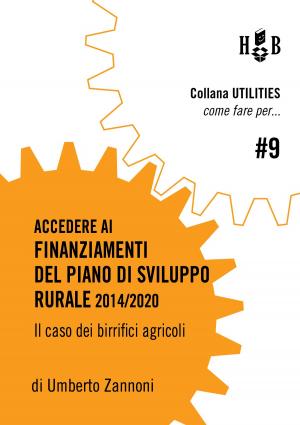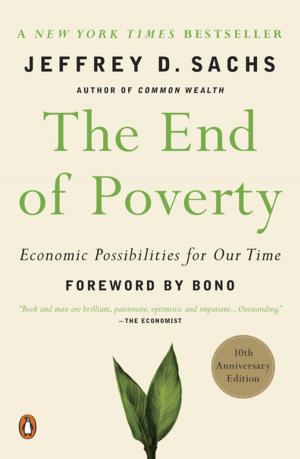| Author: | Fernando Urias | ISBN: | 9781465914026 |
| Publisher: | Fernando Urias | Publication: | December 15, 2011 |
| Imprint: | Smashwords Edition | Language: | English |
| Author: | Fernando Urias |
| ISBN: | 9781465914026 |
| Publisher: | Fernando Urias |
| Publication: | December 15, 2011 |
| Imprint: | Smashwords Edition |
| Language: | English |
The “Wealth of the People” Book Series
The task of explaining the causes of the wealth of the people in a society is a long and complex subject for a single e-book. To facilitate the explanation and the delivery of the material, an e-book will be published in each set of topics.
The following are the planned titles of the book series:
Your Wealth
The first book looks at the time savings gained by a single person increasing his physical and mind assets in an island.
The Wealth of Your Neighbor
The second book is about the agreements that two people have to make to be in a path to increase their respective wealth.
The Wealth of the Market
The third book explains the opportunities offered by a free market to produce wealth for the people that participate in it. This book explains the wealth production results when there is a market that brings the competitive advantage of every individual to the market.
The Wealth of the Business Enterprise
The fourth book is about the function of the business enterprise to produce wealth for its customers, its owners, and its employees.
The Wealth of the State
The fifth book discusses what happens when we remove the assumption that everybody is going to behave correctly. The book explores the historical formation of the state and the implications for the production of wealth.
The Wealth of Social Capital
The sixth book is the core of the series. Social Capital is defined as the ability of a society to learn and agree on the rules that are necessary for the production of wealth. This is the key for the wealth of the people in society. This is the ingredient that is a prerequisite for physical and human capital formation and the ingredient missing in many countries that are not able to achieve wealth.
The Wealth of Physical Capital
The seventh book is about the wealth of the physical capital that humanity has today. It should make you grateful that you live in this age and not five hundred or five thousand years ago.
The Wealth of Human Capital
The eighth book is about the wealth of the human capital that humanity has today. A great deal of the human capital available is taken for granted and it is wasted so it will be good to review it.
The Wealth of a Nation
The ninth book takes us to Adam Smith's Wealth of Nations. A nation is an entity that comprises a geographical area with a legal setting. It is governed by a state that is the keeper of the social contract. The state maintains the rules of a nation’s social capital and thus determines the capital structure of the nation and its citizens and in this way the state determines the income of its citizens.
The Wealth of the Planet Earth
The tenth book is about our planet. It introduces the concept of Natural Capital. What we think as natural resources is actually the capitalization of life that has been happening for millions of years. Unfortunately, many of the actions that we do in the pursuit of wealth production reduce the planet’s natural capital. If the planet was treated as a capital asset, it would be maintained correctly and it would not be consumed risking a drop of the whole world to a lower income level.
The Wealth of the Human Spirit
The eleventh book will be an inquiry about what these economic principles might mean for the spiritual world.
The “Wealth of the People” Book Series
The task of explaining the causes of the wealth of the people in a society is a long and complex subject for a single e-book. To facilitate the explanation and the delivery of the material, an e-book will be published in each set of topics.
The following are the planned titles of the book series:
Your Wealth
The first book looks at the time savings gained by a single person increasing his physical and mind assets in an island.
The Wealth of Your Neighbor
The second book is about the agreements that two people have to make to be in a path to increase their respective wealth.
The Wealth of the Market
The third book explains the opportunities offered by a free market to produce wealth for the people that participate in it. This book explains the wealth production results when there is a market that brings the competitive advantage of every individual to the market.
The Wealth of the Business Enterprise
The fourth book is about the function of the business enterprise to produce wealth for its customers, its owners, and its employees.
The Wealth of the State
The fifth book discusses what happens when we remove the assumption that everybody is going to behave correctly. The book explores the historical formation of the state and the implications for the production of wealth.
The Wealth of Social Capital
The sixth book is the core of the series. Social Capital is defined as the ability of a society to learn and agree on the rules that are necessary for the production of wealth. This is the key for the wealth of the people in society. This is the ingredient that is a prerequisite for physical and human capital formation and the ingredient missing in many countries that are not able to achieve wealth.
The Wealth of Physical Capital
The seventh book is about the wealth of the physical capital that humanity has today. It should make you grateful that you live in this age and not five hundred or five thousand years ago.
The Wealth of Human Capital
The eighth book is about the wealth of the human capital that humanity has today. A great deal of the human capital available is taken for granted and it is wasted so it will be good to review it.
The Wealth of a Nation
The ninth book takes us to Adam Smith's Wealth of Nations. A nation is an entity that comprises a geographical area with a legal setting. It is governed by a state that is the keeper of the social contract. The state maintains the rules of a nation’s social capital and thus determines the capital structure of the nation and its citizens and in this way the state determines the income of its citizens.
The Wealth of the Planet Earth
The tenth book is about our planet. It introduces the concept of Natural Capital. What we think as natural resources is actually the capitalization of life that has been happening for millions of years. Unfortunately, many of the actions that we do in the pursuit of wealth production reduce the planet’s natural capital. If the planet was treated as a capital asset, it would be maintained correctly and it would not be consumed risking a drop of the whole world to a lower income level.
The Wealth of the Human Spirit
The eleventh book will be an inquiry about what these economic principles might mean for the spiritual world.















